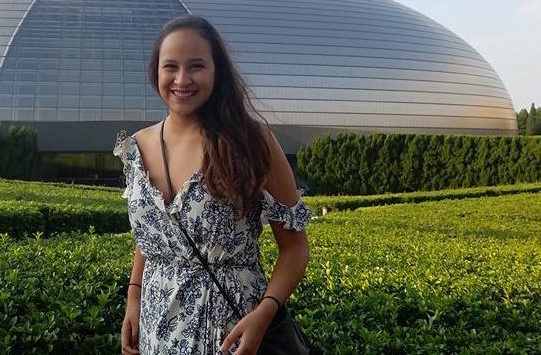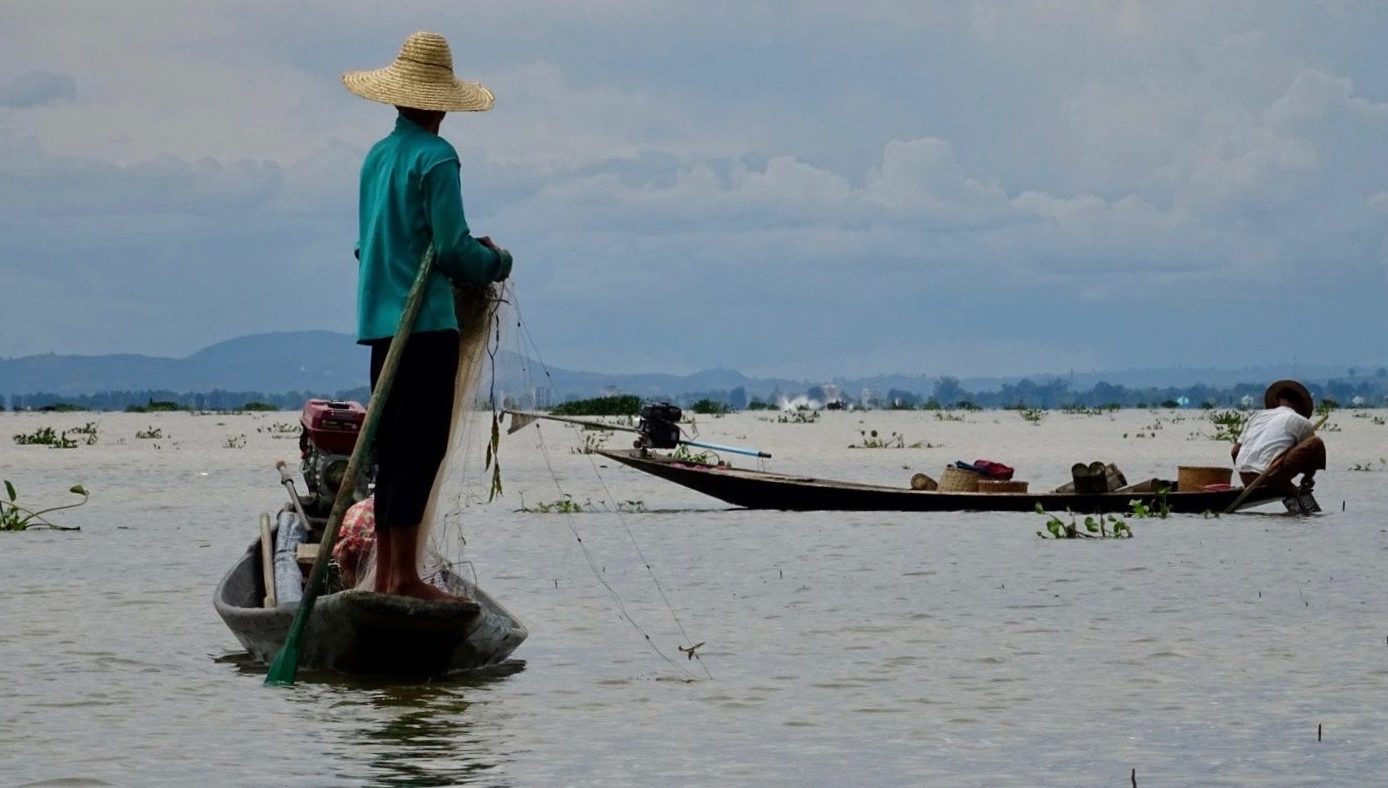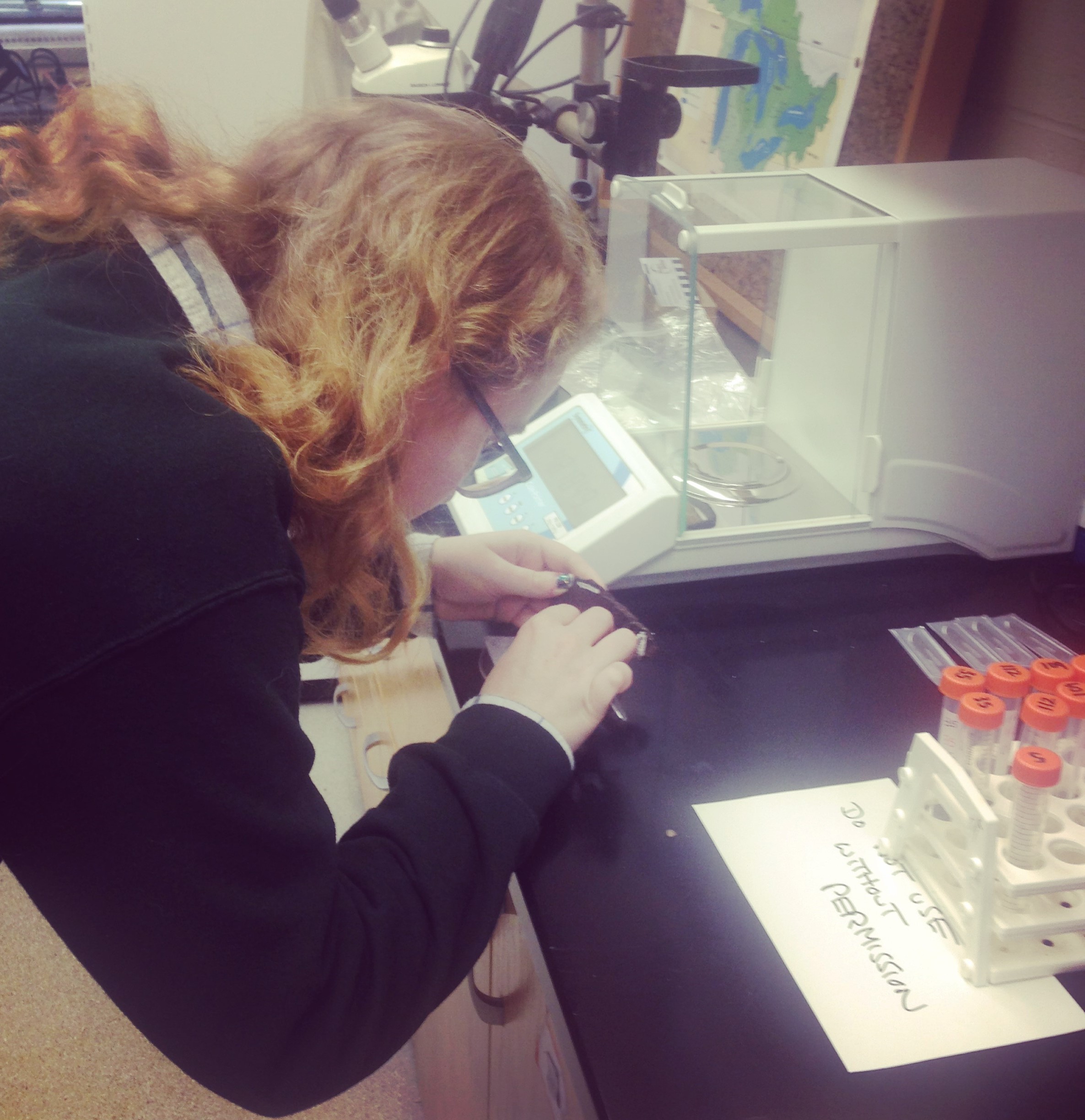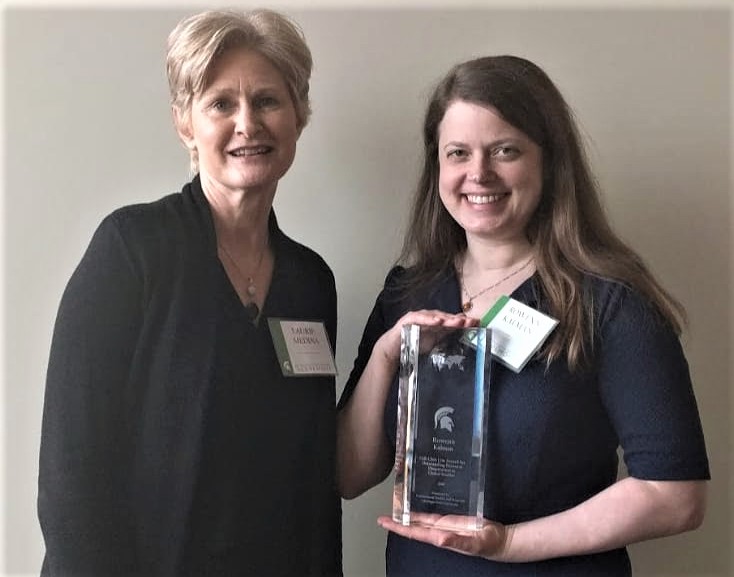-
Outstanding Senior, Becca Albert
The Department of Anthropology is pleased to announce Rebecca K. Albert (aka Becca) as our Outstanding Senior in Anthropology for the class of 2018. Each department in the College of Social Science selects one graduating senior who is the first to walk across the stage at graduation and attend the Outstanding Senior Ball held in […]
-
Anthropology Graduating Senior Breanna Escamilla delivers MSU College of Social Science Spring 2018 Student Commencement Speech
Ms. Breanna Escamilla was chosen as the MSU College of Social Science Spring 2018 Student Commencement Speaker. Breanna majored in anthropology with a focus on sociocultural studies as well as completing a double minor in Chicano/Latino Studies and African American/ African Studies. During her time at MSU, she has participated in various civic engagement activities […]
-

Marcela Omans Awarded NSF
Congratulations to Marcela Omans for her NSF Graduate Research Fellowship she received for her project entitled “La Mesa Barrio Chino, Tijuana, Mexico: China’s Gateway to Latin America.” Her work focuses on providing insight into how newly arrived Chinese immigrants and business people leverage preexisting Chinese networks to gain economic footholds in Latin America; and on […]
-

Fieldwork Photography Contest Winners 2018
We would like to thank everyone who entered. The photos were amazing as always. 1st Place Fishing Inle Lake; Myanmar, 2017 Edward Glayzer; Graduate Student 2nd Place A Parade in Began; Myanmar, 2017 Edward Glayzer; Graduate Student 3rd Place Reading Aloud in Fon; Benin, 2018 Marcy O’Neil; Faculty Congratulations to all of […]
-

Undergraduate Becca Albert publishes prestigious article
The Department of Anthropology would like to congratulate undergraduate Becca Albert on her outstanding research. She is the Anthropology Senior of the Year, an award given yearly by our department to a graduating senior. Last week she won first place in her section at the Michigan State University Undergraduate Research and Arts Forum, and she […]
-
Full-time, non-tenure track Assistant Professor Job Posting
The Department of Anthropology at Michigan State University invites applications for a full-time, non-tenure track Assistant Professor position. The appointment will begin August 16, 2018 and be renewable annually. Our faculty envision this as a teaching professor position focused on excellence in the anthropology classroom. This individual will play a key role in the advancement of undergraduate […]
-

Dr. Rowenn Kalman receives Gill-Chin Lim Award
Our own recent graduate and adjunct faculty, Dr. Rowenn Kalman has been awarded the Gill-Chin Lim Award for Outstanding Doctoral Dissertation in Global Studies from the MSU International Studies and Programs. This award, given every academic year, acknowledges a graduate student for their outstanding doctoral dissertation. The dissertation submitted had to be completed the preceding […]
-
Alumnae Dr. Mary Ann Ladia to visit March 28 and 29
Mary Ann J. Ladia, PhD currently serves as University Researcher III of the Institute of Clinical Epidemiology at the National Institutes of Health and Faculty of the Department of Clinical Epidemiology of the College of Medicine at the University of the Philippines Manila. Dr. Ladia received her PhD from the Department of Anthropology in 2008 […]